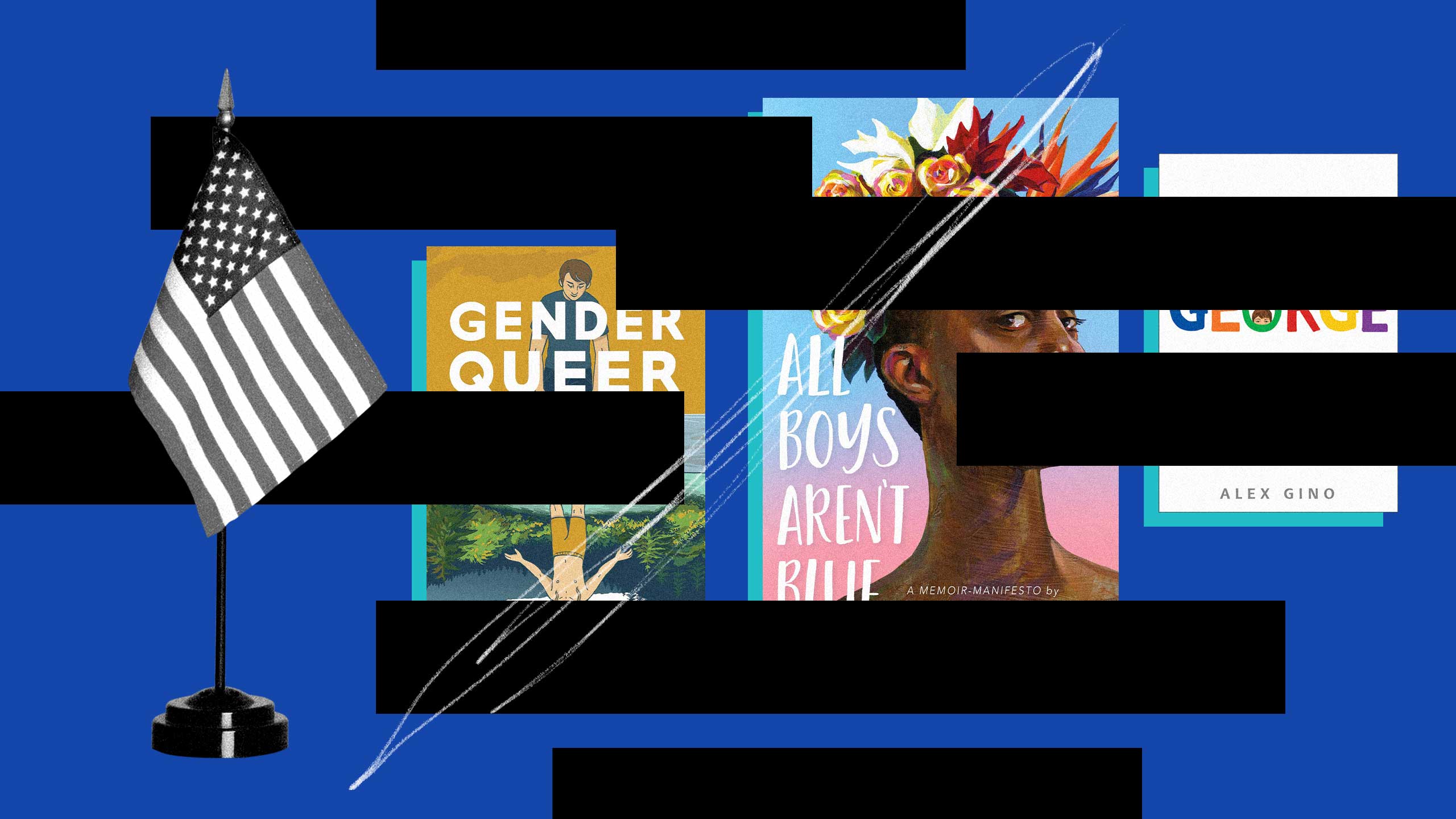America’s nationwide panic over “critical race theory” and the rise in anti-trans sentiment have created a firestorm of attempted book bans at the local level, primarily directed at titles centring Black, queer and trans stories.
A white school board member in Flagler County, Florida, called the police last week after finding copies of author and activist George M. Johnson’s book All Boys Aren’t Blue in four school libraries. Jill Woolbright claimed the book, which chronicles Johnson’s coming of age as a young Black queer person through a series of personal essays, violated the state’s obscenity laws and filed a criminal complaint with the local sheriff’s office.
The incident has prompted a debate within the surrounding community, with students leading a rally against censorship outside a school board meeting on Nov. 10 that local ABC affiliate WESH described as “heated.”
Speaking to Xtra, Johnson calls the incident an attack on their existence as a queer person.
“I don’t necessarily feel there’s an attack on my work. For it to be an attack on my work, I would have to believe that these people actually read the book,” they say. “I feel like it’s an attack against my livelihood in terms of who I am. It’s an attack against my existence. And it’s an attack against all of those who exist who have similar lived experiences to mine, and it’s an attack against all of my ancestors and those who are no longer here who never got to share their story because of people like this.”
Woolbright isn’t the only one coming for Johnson’s multiple award-winning book: school boards from Pennsylvania to Texas have been targeting All Boys Aren’t Blue this year, along with a host of other books dealing with racial justice or the lived experiences of LGBTQ2S+ people. Other books commonly on these lists—which have come from school boards, state legislators and even governors—include The Hate U Give by Angie Thomas, Gender Queer by Maia Kobabe and Stamped: Racism, Antiracism, and You by Ibram X. Kendi and Jason Reynolds.
“It’s an attack against my livelihood in terms of who I am. It’s an attack against my existence.”
Another book often on ban lists is Alex Gino’s novel George, about a young trans girl. In 2021, George has once again topped the American Library Association’s Office for Intellectual Freedom’s list of the most-banned books in the U.S. for the third year running.
“It frustrates and angers me to know that adults are trying to block kids’ access to awareness and stories about who’s in the world,” Gino said in a statement. “For LGBTQIA+ kids, the road back from shame and hiding and being told you aren’t real is long and hard, and we don’t come out of it unscathed. For all of us, the lack of positive LGBTQIA+ representation in media means we are less prepared to treat people with respect when we meet them.”
Johnson similarly notes that censoring books dealing with topics like systemic racism and queerness doesn’t mean kids won’t be exposed to those topics, or that their identities will cease to exist. “I think parents and school boards have to realize that taking resources away that talk about topics that you deem are too heavy doesn’t mean that the students and your kids and the youth are still not experiencing those same heavy topics,” Johnson says.
“They just lose trust that they can talk about them with you, and then they go to other areas to deal with it that may put them at risk and make them vulnerable,” they add.
In the face of this onslaught, LGBTQ2S+ authors say the best way to combat the conservative outrage is to purchase the targeted books. By supporting queer and trans literature, Johnson points out, readers are indicating interest to booksellers—meaning, more stores will stock the book and it will stand a greater chance of reaching the youth who need it.
Johnson also notes the importance of correcting misinformation about the book, as well as contacting local school boards and voting in local elections. These attacks, they say, are just the latest form of censorship directed at Black voices in the U.S.
“What makes this movement so dangerous is it is once again a movement against truth,” they say. “And we know that we live in a country that has always struggled with telling the truth of its origins.”


 Why you can trust Xtra
Why you can trust Xtra


